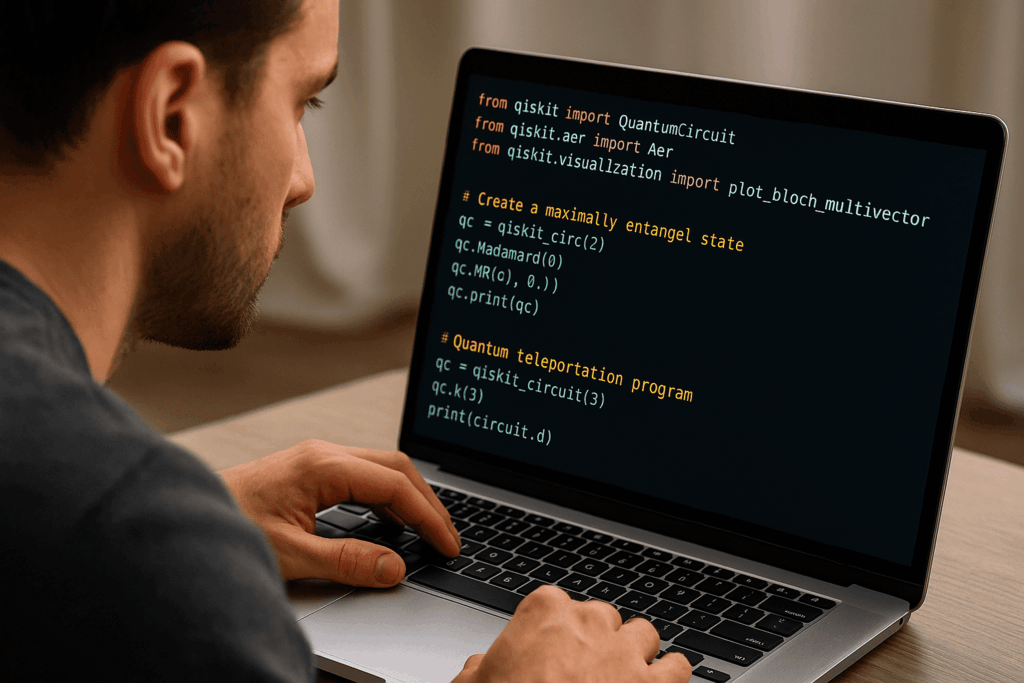Insider Brief
- The United States and South Korea are expanding their defense technology partnership with a focus on quantum technologies, AI, and autonomous systems to modernize and strengthen their defense capabilities, according to a U.S. Department of Defense fact sheet.
- Through a new Defense Science and Technology Executive Committee (DSTEC), the allies will drive innovation in quantum encryption, secure communications, and data analysis, aiming to enhance situational awareness and secure critical defense channels.
- The U.S. and South Korea also launched frameworks for broader regional cooperation, including missile defense and trilateral security efforts with Japan, to reinforce stability in the Indo-Pacific amid increasing regional tensions.
The United States and South Korea have agreed to expand their defense technology partnership with a focus on quantum technologies, autonomous systems and artificial intelligence, as part of broader measures to modernize their combined defense posture, according to a U.S. Department of Defense fact sheet.
During the 56th U.S.-Republic of Korea (ROK) Security Consultative Meeting (SCM), U.S. Secretary of Defense Lloyd J. Austin III and South Korean Minister of National Defense Kim Yong Hyun outlined initiatives to integrate cutting-edge technologies into their defense alliance, according to the fact sheet.
Following the SCM, Austin and Kim met on October 31 with U.S. Secretary of State Antony Blinken and ROK Foreign Minister Cho Tae-yul for a Foreign and Defense Ministers’ Meeting, known as the 2+2 Meeting, to align diplomatic and defense strategies.

The closer tech ties between South Korea and the U.S. comes as the countries discussed options for countering North Korea’s recent deployment of thousands of soldiers to support Russia, reports DefenseScoop.
“Sec. Austin and I pledge to strengthen cooperation in science and technology and defense industry, based on the defense vision of the alliance. We plan to establish a vice minister-level Defense Science and Technology Executive Committee within this year to explore the application of cutting-edge science and technology in the defense sector,” Kim said through his interpreter, as reported by DefenseScoop.
Quantum and Advanced Tech Integration
A newly established Defense Science and Technology Executive Committee (DSTEC) will oversee advances in quantum technologies and other emerging systems within the U.S.-ROK alliance.
Quantum technology offers strategic advantages in national defense and security through applications like ultra-secure communication networks, enhanced encryption and sophisticated data analysis, according to the fact sheet. Quantum encryption methods, for instance, leverage the principles of quantum mechanics to create nearly unbreakable communication channels, preventing potential adversaries from intercepting sensitive information. Additionally, quantum-based sensors promise heightened precision in detecting submarines, aircraft, and other stealth assets, bolstering situational awareness in critical operations.
Quantum computers could theoretically power advanced data processing capabilities, allowing defense agencies to manage and analyze vast datasets quickly — key for real-time decision-making and intelligence gathering in complex environments. Another area where quantum computers could help militaries is through logistics. Robust quantum computers, still under development, could optimize supply chain operations, streamline resource allocation and enhance strategic planning for mission readiness, for a few examples.
By incorporating quantum technologies into joint defense operations, the allies aim to improve encryption, secure communications and enhance capabilities in data analysis. The DSTEC plans to further drive innovation, targeting areas where autonomous systems and AI can further strengthen the alliance’s defense architecture.
“Moving forward, we’ll build on our momentum. And we’ll expand the scope and scale of our cooperation. We’ll use our strategic advantages and innovation in our defense industrial bases to bring cutting-edge tech to our warfighters,” Austin said, as reported by DefenseScoop.
In support of these goals, the allies agreed to conduct large-scale joint exercises, including Freedom Shield and Ulchi Freedom Shield, which will integrate advanced technology-driven training methods to bolster combined crisis response readiness.
Bolstering Extended Deterrence
The U.S. reaffirmed its extended deterrence commitment to South Korea, with both nations intensifying collaboration through the Nuclear Consultative Group (NCG). This group will facilitate integrated planning and decision-making for nuclear and conventional defense operations. Enhanced deterrence strategies, particularly on the Korean Peninsula, underscore the U.S. stance on countering North Korean threats and maintaining stability in the region, the fact sheet states.
Modernizing Alliance Capabilities
The allies are also investing in missile defense capabilities, including upgrades to Shared Early Warning Systems, to counter missile threats from North Korea, according to the fact sheet. As part of this modernization, the U.S. and South Korea will expand their defense industrial cooperation through the Partnership for Indo-Pacific Industrial Resilience (PIPIR), coordinating supply chains and maintenance activities to field interoperable, modern defense systems.
Strengthening Regional Security Cooperation
To reinforce regional stability, the U.S. and South Korea launched a Regional Cooperation Framework aimed at building capacity in areas such as maritime security and defense technical cooperation. This framework is expected to deepen ties across the Indo-Pacific region, advancing a shared commitment to a secure and open regional order.
Additionally, the two countries are set to increase trilateral cooperation with Japan through a Trilateral Security Cooperation Framework, which will institutionalize high-level dialogues and enhance missile warning data sharing among the allies. The framework also provides for expanded trilateral exercises to maintain a coordinated defense posture.

















